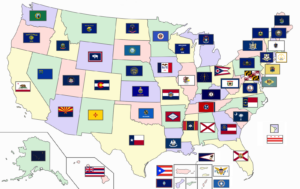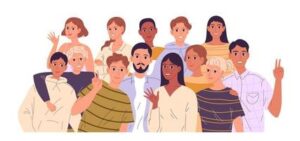Who are “others” within Communities?
Communities are made up of people from shared geographical location or shared interests. They may live near each other, attend sporting events, Colleges, restaurants, concerts and many other things that would end up placing people together within a community. However, within a community many people may find themselves out of place or notice other people appear out of place. What are the reasons for why people are seen and called the “others” within the same community. Despite having similar interests and ideas, how can communities have people that are still outsiders.
One major factor I have seen within my soccer team is background and where people come from. My team is made up of a congregation of people that are from all over the US and the world. People from different states such as California, Connecticut, Maryland, Texas, Florida and many others from within the US. People from countries such as Kenya, Brazil, England and others were recruited to this team. They were recruited to the same goal and aspirations to get an education and help a college soccer team in Carlisle, Pennsylvania. Despite background and experiences in their respective countries and states, they made the decision to join this community. While most were able to make connections with the majority of people from closer to the area, some struggled and just weren’t able to make those connections. It was clear in the locker room, at practice, in the cafeteria and even outside of the soccer field. Many of the guys gathering and hanging together before, after and throughout practice. Coming closer together. While a few just seemed sort of out of place. To someone on the outside, it looked like a tightly knit group where everyone is best friends and spends all their time together with each other. But in reality, there’s just those few guys that just don’t entirely fit in.
The biggest factor was geographical location. Where you come from entirely effects your outlook on life, your first-hand experiences, the language you speak and most importantly of all, the communities you are apart of. Wherever you’re from, you apart of a multitude of different communities. You become accustomed to the people there and how they act. You’re apart of communities such as your neighborhood, your sports teams, your ethnicity, whatever your hobbies and interests are and your family. When you become accustomed to these communities, you have a sense of belonging as you have a ton in common with many of these people. However, when you attend a college in a whole different part of the world, it likely you will have a hard time connecting with people in this community. This is because all these new people are a part of societies and cultures that are more similar to each other’s. They all have a lot more in common than you do with any of them. As you are used to people from different cultures than they are, it is far hard to make connections. Within your team, people will be friendly to you as they care about you and want to be friends with you. You are a part of that community. However, you still may feel like an outsider as you don’t have much else in common. The interests and hobbies you love may not even be known or talked about ever within your community. You are inside the community, but it may feel like you’re still looking and watching everyone within your community.
For me personally, I tend to group my teammates from other countries together. I tend to view them as international students. While I fully understand they are from different communities and individual people with their own interests and hobbies, they tend to be very different from me. Whether it be language, interests, humor or any other factors, I find I have much more in common with my teammates from America. I still make connections with them. One of them has become one of my closest friends on the team. However, when I first met them it was hard to make connections as we were from far different communities.

While people within these communities are often accepted, this is not always the case in the International system. Often, countries have and will exclude certain cultures. They may create laws against them and them inferior to the majority within the country. They may even attempt to kick them out or go as far as committing mass genocide against them, in some extreme circumstances. While there are many historical examples of this, such as prejudice against blacks in America and Jews in Germany, there are still many examples that are ongoing in this day and age. The most current example being the Israel-Palestine conflict.

The conflict itself has gone on for over 7 decades. With Israel kicking Palestinians out. There have been many attacks on both sides causing hundreds of thousands of casualties over the span of the conflict’s history. More recently, the Gaza strip has been under conflict. While Israel looks for a peace agreement after all this time, stating that Palestinians could have their own state in the West bank and Gaza alongside Israel, one of the conditions is Palestine would have to be demilitarized. While Palestinians have sworn towards Israels destruction and won’t accept peace.
This is one of the more extreme examples in history, but explains the conflict within the country between 2 different countries. This creates a conflict as Palestinians are made to be outsiders within the Israeli community. The effects of the difference in communities can have many different effects in International Politics and every day life. However, one thing is clear and thats the need for the accepting of people as human beings and not judging people based on the cultures they come from. Despite different beliefs and backgrounds, we all want to be accepted for who we are individually and not stereotyped by where we come from.

Leave a Reply